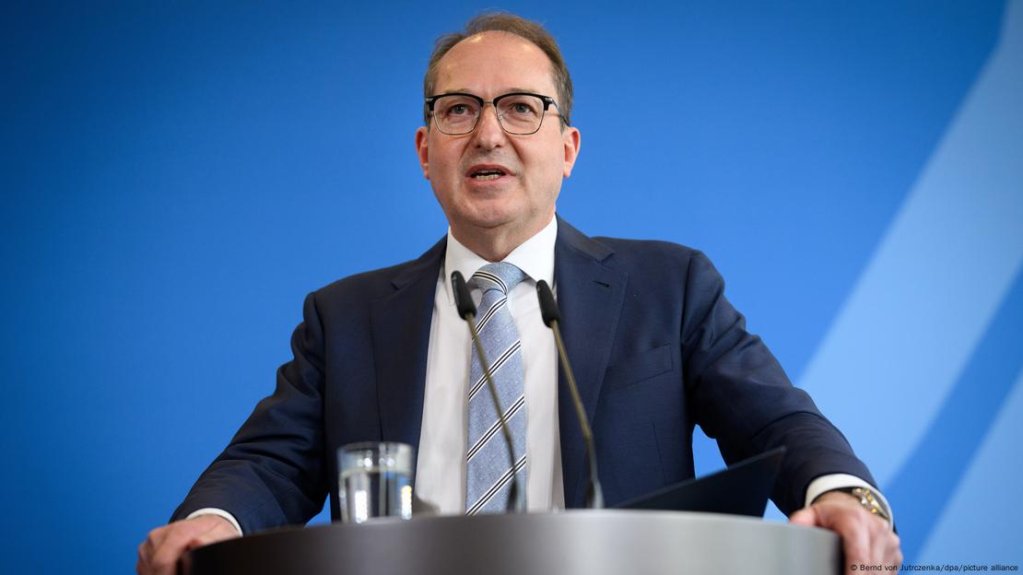For some people applying for a spousal visa to Germany, the language requirement is causing problems. In 2024, the German Foreign Office distributed slightly fewer visas than in 2023, and many of these seem to be because the candidate didn’t meet the language requirement.
In 2024, the German Foreign Office handed out 72,500 spousal visas -- slightly fewer than in 2023, when the number stood at 77,200. This, reported the German press agency dpa, was partly because of candidates failed to reach the requ ired A1 language level required to join their partner in Germany.
According to data from the German government, 62 percent of spousal visa candidates passed the German language requirement last year. In 2023, the pass rate stood at 65 percent, reported the German news magazine Der Spiegel. The language test can be a "hurdle", writes Der Spiegel.
The left-wing Die Linke party is saying that expecting a spouse to demonstrate a certain level of German could be against European law. Partly because the requirement for a language level does not apply to all applicants equally: those joining skilled workers, for instance, are allowed to enter Germany first and begin learning the language afterward.
According to German government data reported by dpa, in the last few years, nationals from Turkey, India, Kosovo, Russia and Iran were most likely to apply to bring their spouses to Germany to join them. Afghan nationals were number 16 on the list.
In 2024, 1,395 spouses from Iran were able to join their partners in Germany, which doesn’t mirror the figures for Afghans in the country who have a protection status in Germany.

Rules in Germany for applying for a spousal visa
In Germany, rules surrounding a spousal visa are as follows, according to information published on the German Federal Bureau for Migration and Refugees (BAMF) in March 2024:
- For any kind of family reunification visa, Germany expects that the person applying to have a family member joining them has sufficient living space to accommodate the extra people and a guaranteed income to support that person or people when they arrive.
- A person in Germany applying for a family reunification visa of any kind, including a spousal visa, also needs to have a valid permission to stay in Germany, for instance a residency permit.
- Any spouse wishing to join their partner in Germany has to be over 18 and usually they have to demonstrate they have a working daily knowledge of German, so they can understand people and make themselves understood.
- Spousal visas are valid for same sex partners as well as for heterosexual couples.
Read AlsoFrom fear to freedom: LGBTQ+ migrants seek safety in Germany
Exceptions to the rules
- In some cases, notes the BAMF website, for instance in family reunification cases where the spouse comes to join a skilled worker, that spouse can learn German once they have moved to Germany.
- Holders of international protection in Germany do benefit from some exceptions to the rule, for instance if the application for the spousal visa is applied for in the first three months after the protection status was granted.
- According to the BAMF website, when a person who has been granted protection in Germany applies to have their spouse or family members join them within the three-month window after being granted protection, they do not have to have a guaranteed income or a certain size of property to accommodate everyone.
- If their application for asylum is initially refused, but then perhaps overturned on appeal, the three-month window starts again from the date of the positive appeal. If you reached Germany via a resettlement program, which also often involves you having been granted asylum as part of the program, the three-month window starts once you get your first stay permit issued.
- For people who hold international protection status in Germany, family reunification is possible later down the line too, but then those applicants would have to have a job, guaranteed income and a big enough property to accommodate all those they are applying to join them.
Read AlsoGermany denies entry to foreign spouses
New government, new rules?
The new German government has said that it intends to tighten up many of the rules surrounding migration policy in Germany. Most of those applying for family reunification are Syrians in Germany.
When the new government took power, they removed the possibility of applying for family reunification from all those who held a temporary protection status, which is most Syrian people in Germany. This status had been granted due to the threat posed by the Assad regime. Although Assad is no longer in power and the same dangers are not there, the temporary protection status has not yet been removed. However, it could potentially be revoked in the future, depending on how the situation develops in Syria.

Germany’s new interior minister, Alexander Dobrindt, from the Bavarian CSU party, has promised there will be a cabinet decision regarding the current block on granting family reunification rights to those with subsidiary protection "shortly," reported dpa.
Under Germany’s last government, the so-called traffic light coalition, led by the social democratic SPD, in conjunction with the Green party and the Liberal party, the coalition parties promised to do away with the German language requirement, or at least, allow spouses to learn German and take the test after their arrival, so be issued with the visa before they had the required level of Germany. However, in the event, they did not manage to remove that requirement.
For those people with temporary protection status in Germany, the German authorities have imposed a cap of 1,000 applications per month on the number of spouses who can apply for a visa. The new government has promised that this group of people will probably be the next group to experience a block on the applications for spousal visas.
